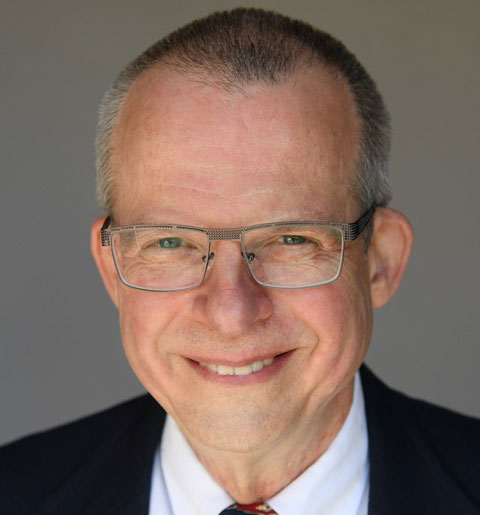PTSD Treatment Center in Tacoma, Washington
PTSD treatment programs are for people who have PTSD or post-traumatic stress disorder. PTSD treatment programs specialize in helping those who have experienced PTSD process and work through traumatic experiences. Untreated PTSD can prevent people from living a full life. Seeking help with your PTSD is brave and will be empowering. The good news is that Bayview Recovery addiction rehab center also offers treatment for these issues.
Mental health issues are often highly isolating. Fortunately, you are not alone in your recovery. With the help of Bayview Recovery, you can find the healing and support that you need. To learn more about our trauma therapy program and other services, please contact Bayview Recovery today.

What Is PTSD?
Post-Traumatic Stress Disorder, better known as PTSD, is a mental health condition that some people develop after they experience or witness a very scary or dangerous event. This could be something like a car crash, a natural disaster like a tornado, being in a war, or being attacked or bullied.
People with PTSD often have intense, scary thoughts and feelings related to their experience that last long after the trauma event has ended. They may relive the event through flashbacks or nightmares; they might feel sadness, fear, or anger, and they may feel detached or estranged from other people.
PTSD can significantly impact a person’s daily life, making it hard for them to go about their normal activities.
The good news is that there are trauma recovery programs available that can help people feel better.
Trauma and PTSD are both related to experiencing scary or distressing events, but they’re not the same thing. Essentially, the main difference between trauma and PTSD is how long these feelings last and how they affect your life. While it’s normal to have a strong emotional reaction after a scary event, most people start to feel better after a few weeks or months. But if your symptoms last longer than a month, cause you great distress, or interfere with your work or home life, you might have PTSD.
Trauma is an emotional response to a terrible event. This could be things like car accidents, natural disasters, or being attacked. After the event, you might feel shocked, scared, angry, sad, or even guilty. These feelings are totally normal and usually start to fade over time as you process what happened.
PTSD is a mental health disorder that some people develop after experiencing trauma. People with PTSD continue to have intense, disturbing thoughts and feelings about their ordeal that last long after the event has ended. They may relive the event through flashbacks or nightmares. They might feel sadness, fear, or anger. They may feel detached or estranged from other people. Within our PTSD program, we offer trauma therapy in Washington, which has proven to be highly effective.
Post-Traumatic Stress Disorder (PTSD) is a mental illness that some people develop after going through a really scary or dangerous event. This could include:
- Being in a car crash
- Seeing violence happen to someone else
- Being attacked or bullied
- Being harassed because of your race, gender, or sexual orientation
People who have experienced any of these things might start having nightmares or flashbacks about what happened. They might feel scared or upset when something reminds them of the event. This is what we call PTSD.
Now, not everyone who experiences a traumatic event will get PTSD. Some people are more likely to develop it than others. These are some of the risk factors that can make someone more likely to get PTSD:
- Being in a war
- Being physically abused as a child
- Being sexually assaulted
- Being threatened with a weapon
- Experiencing an accident
Also, if someone has already gone through a traumatic experience before, especially when they were a kid, they’re more likely to develop PTSD if something traumatic happens to them again.
Lastly, sometimes even the sudden death of a loved one can cause PTSD.
Remember, it’s okay to ask for help if you or someone you know is struggling with feelings like these. There are treatments available that can help people feel better.
- Re-experiencing the trauma: This can happen through distressing recollections of the event, flashbacks, and nightmares
- Avoidance: People with PTSD might avoid places, people, or thoughts that remind them of the past trauma.
- Emotional numbness: They may feel unable to have positive or loving feelings toward other people and lose interest in things they used to enjoy.
- Hyperarousal: This means feeling “on edge,” being easily startled, having difficulty concentrating, or having trouble falling asleep.
- Physical symptoms: These can include chills, shaking, headaches, heart palpitations, and panic attacks.
- Feeling tense, sad, or hopeless: They might withdraw from others, act defiantly, show impulsive behavior, or have other physical manifestations.
- Other problems: These can include difficulty connecting to others, repeatedly checking for threats, or having trouble recalling details of the trauma
PTSD symptoms can vary in intensity, but it is easy to see how PTSD can be detrimental to any person’s life. Often, people with PTSD spend much of their time in fight or flight mode. This causes hormone levels in the body to be continuously elevated. The body then becomes physically and mentally stressed. People often act out or self-medicate to feel some relief from the constant stress of PTSD.

What to Expect at a PTSD Treatment Program
During treatment for PTSD, a person can expect a combination of medication and therapy. Individuals may also enroll in different treatment programs that will offer different levels of care depending upon what is best for the person. Treatment programs are offered in an outpatient or residential setting. At Bayview, we offer evidence-based care mixed with a holistic approach providing treatment to the whole person.
Remember, it’s crucial to consult a healthcare provider or mental health professional to determine the most appropriate treatment plan.
Medications used for the treatment of PTSD typically include selective serotonin reuptake inhibitors (SSRIs) and serotonin-norepinephrine reuptake inhibitors (SNRIs), which are types of antidepressants. The medications conditionally recommended for the treatment of PTSD are sertraline, paroxetine, fluoxetine, and venlafaxine.
Another type of medication that could assist with PTSD treatment is fast-acting anti-anxiety medications. This provides short-term relief of symptoms by calming the patient. Psychiatrists may also prescribe antidepressants, mood stabilizers, and alpha-1 blockers for the treatment of PTSD.
Since PTSD is a complex disorder that affects individuals differently, the choice of medication will depend on the specific symptoms, the patient’s overall health status, and their response to treatment.
PTSD therapy will usually start out with cognitive behavioral therapy, and your therapist may dive into experiential therapy techniques. Experiential therapy can be beneficial for people, especially if they have trouble accessing the memories associated with the experience.
Some individuals have also found group therapy, family therapy, art therapy, or dialectical behavior therapy helpful in managing their condition. It’s important to remember that everyone’s experience with trauma and PTSD is unique, and what works best will depend on the individual’s specific symptoms, overall health, and personal preferences.
Some types of therapy services you can expect to be involved in during a trauma therapy program are:
- Individual therapy
- Group therapy
- Family therapy
- Experiential therapy (art, music, role-playing, animal, nature)
- Mindfulness therapy program
- PTSD counseling
If you or a loved one has PTSD, seek help. Your life will improve significantly by learning to change default behaviors and process the memories and emotions associated with the event. A PTSD program in Tacoma, WA, will prepare you to better face the world after experiencing traumatic events.
Bayview Recovery also offers a PTSD and addiction treatment program with a variety of therapies for you to choose from. We specialize in co-existing conditions to help people recover from PTSD and addiction. Through our PTSD treatment program, we can address a wide array of co-occurring substance abuse conditions, including:
- Alcohol addiction treatment
- Heroin addiction treatment
- Cocaine addiction treatment
- Meth addiction treatment
- Opioid addiction treatment
Additionally, during PTSD treatment, you should first be exposed to many different types of treatment services to see what will work best for your healing process. Everyone has different learning preferences and different healing preferences. Exploring options and finding techniques that work for you is going to be the fastest way to a happier and healthier mind.

Can a Person with PTSD Live a Normal Life?
Yes, a person with PTSD can live a normal life. While living with this mental health condition can feel overwhelming at times, recovery is possible with the right treatment and support from friends and families.
A person struggling with PTSD should seek out effective treatment that works for them. This could involve therapy, medication, or a combination of both. It’s also important to have supportive people, like friends and family, who understand what you’re going through.
Although it may seem impossible during recovery, with proper treatment and a supportive environment, life can become normal again. The intensity of trauma and associated emotions may not be easily fixed in just a few sessions, but recovery is possible if you follow an effective treatment schedule.
A Tacoma Washington
Drug And Alcohol Rehab Center
Bayview Recovery, located in Tacoma, Washington, specializes in addiction recovery and has helped thousands of adult men and women safely navigate their way through addiction and back to sobriety. We are an addiction treatment and recovery center that treats substance abuse and co-occurring disorders.
Find Trauma Recovery at Bayview Recovery
If you are looking for a mental health treatment center in Washington State, we here at Bayview can help.
Our programs work to offer you a range of treatments so that you can find the best fit and have a better chance at success after leaving treatment with Bayview Recovery. Our multidisciplinary team provides comprehensive treatment for trauma and related disorders. Give us a call today to find out more about how we can help you live the way you deserve.
“The staff at the center has been remarkable in their care for our loved one. Tuni was with us the whole way as we tried to get this person into treatment. They continue to assist us as the process continues. Great work!”
Ray O
“I have been trying to get sober the past 3 years and I have been to treatment 5 times. Bayview Recovery was my 6th time. They helped me get to 142 days sober! I was a handful hot mess when I got there but the team never gave up on me. They work with families and they truly care about them too. Bayview house’s are clean and comfortable and the staff is amazing. They plan for fun events weekly and they want you to have fun. If your looking for something different call them it will save your LIFE!”
Cindy J
“Bayview is dedicated to providing clients the healthiest environment to develop a solid foundation in their recovery. The therapists and medical team are devoted to ensure clients have the best individualized care. I highly recommend Bayview for anyone seeking a highly professional treatment program. The care and compassion given to clients is remarkable.”
Robin M
“This is a fantastic facility with outstanding staff. If you or a loved one is struggling this is a great program to start the journey of recovery and get life long skills and relationships to begin a new life!”
Garrett T
“Just picked up our daughter after 90 days at Bayview Recovery. Loved the staff and facility, do not know what the future holds ???????? but while at Bayview , always felt informed. Highly recommend, incredibly helpful especially at the very beginning when we were so helpless and needed help the most – God Bless.”
Rosie S
Dave Cundiff, MD, MPH is an experienced leader in the field of Substance Use Disorder treatment. He works with patients suffering from Substance Use Disorder to evaluate their medication needs and prescribe treatments accordingly. In addition, he regularly participates in all-staff debriefing sessions involving peers, nurses, and other prescribers. He also reviews and advises on policies, procedures, and techniques for treating substance use disorder.




